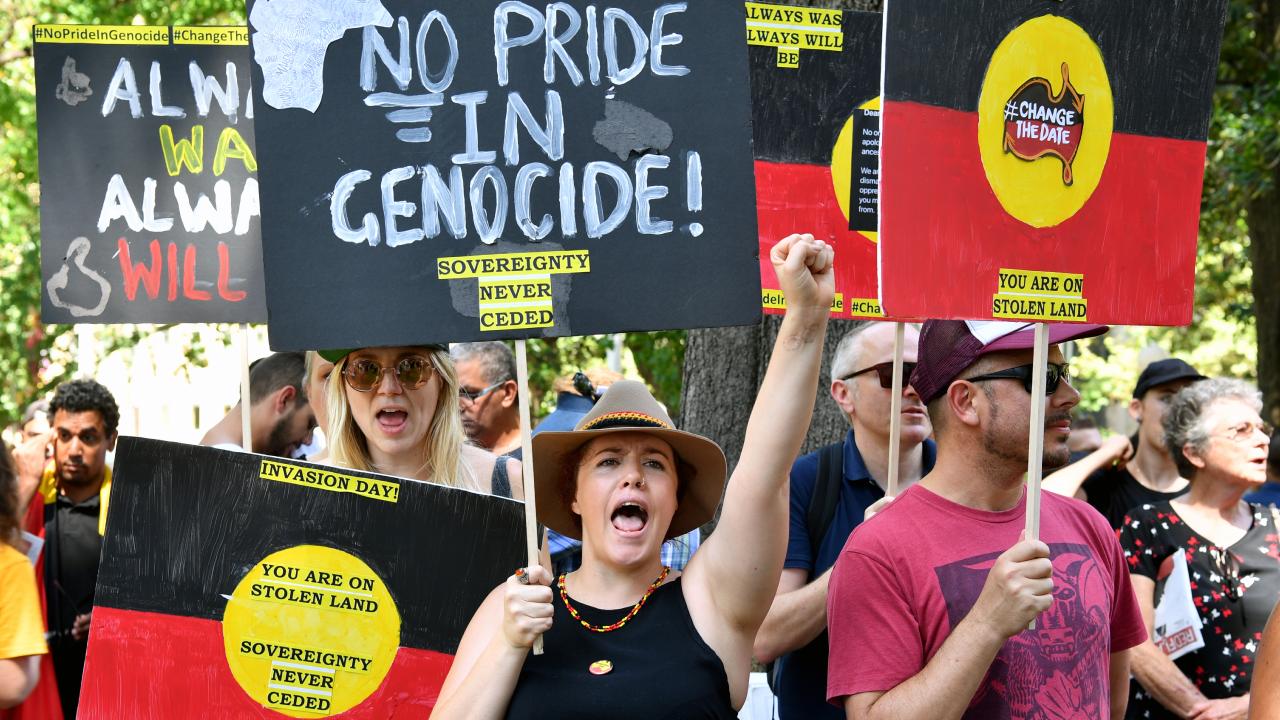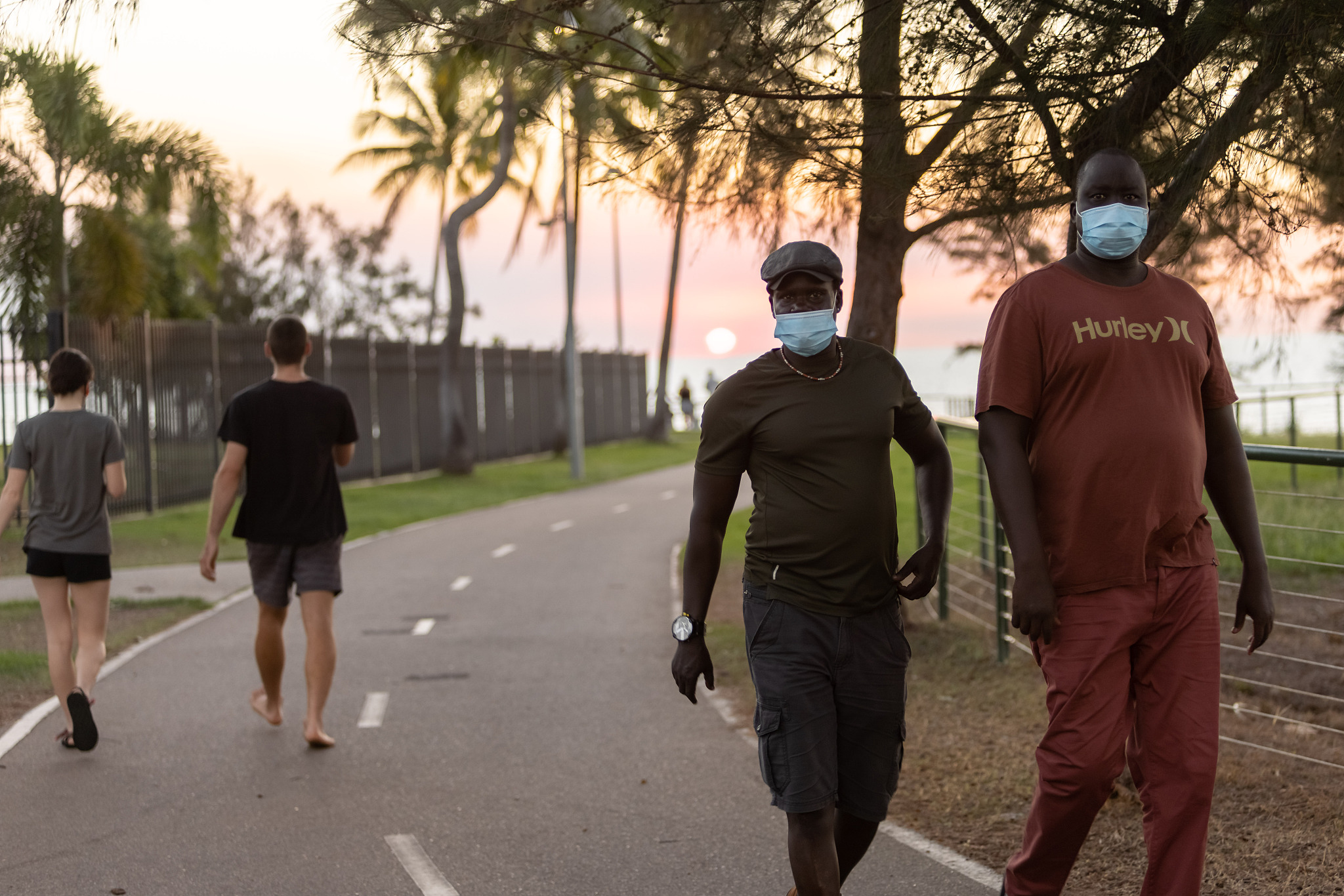
A protest on Australia Day, which marks the arrival of European settlers in Australia, to highlight the injustices Indigenous people face in the country, January 26, 2019. /Reuters
A protest on Australia Day, which marks the arrival of European settlers in Australia, to highlight the injustices Indigenous people face in the country, January 26, 2019. /Reuters
Australia has failed to meet the targets set by the government to tackle inequality affecting Indigenous people, according to official data released on July 29.
The first annual data report on the National Agreement on Closing the Gap (NACG), released by the Productivity Commission, shows Indigenous people are being jailed, dying by suicide and ending up in the child protection system as minors at increased rates.
The report also revealed that the NACG's principal commitment to close the life expectancy gap for First Nations people by 2031 was not on track to be met. Data shows that Aboriginal and Torres Strait Islander boys and girls born between 2015 and 2017 are expected to live 8.6 and 7.8 fewer years than non-Indigenous children.
Hailed a "historic achievement" by Prime Minister Scott Morrison, the NACG was signed into effect on July 30, 2020, with the stated objective to "overcome the entrenched inequality faced by too many Aboriginal and Torres Strait Islander people so that their life outcomes are equal to all Australians."
The government has identified four priority reform areas and 17 socioeconomic outcomes critical to addressing the ongoing legacy of colonialism and marginalization of Indigenous populations.
But a year on, the Australian government has yet to release an implementation plan.
Campaigners say the new annual data report was an important tool for tracking progress in improving Indigenous people's lives and keeping governments accountable.
Peter Baume, a former minister and leading advocate for the Indigenous cause, told Australian media that the figures are a disgrace in a rich country. "These are awful figures that they deserve a serious national response, like that which Australia was able to mount for the COVID-19 crisis," he told The Sydney Morning Herald.
"It seems that we do not attach the same urgency of matters affecting Aboriginal society as we do matters affecting white society," Baume said.
As Australia faces a resurgence of COVID-19 cases driven by the spread of the Delta variant, it is feared that Indigenous communities living in areas with limited access to medical care could be particularly hard-hit.

A three-day lockdown is announced in Darwin, Northern Territory after a local Aboriginal man tested positive for COVID-19, Darwin, Australia, August 16, 2021. /CFP
A three-day lockdown is announced in Darwin, Northern Territory after a local Aboriginal man tested positive for COVID-19, Darwin, Australia, August 16, 2021. /CFP
In western New South Wales, the "vast majority" of COVID-19 cases are among Aboriginal people, with 40 percent being Aboriginal children aged between 10 and 19, according to the local health district. Meanwhile, vaccination rates for the group are significantly lower than those for the general population of Australia.
"Throughout the COVID-19 pandemic, we've seen how our current systems and ways of working entrench inequality and fail far too many of our peoples," said June Oscar AO, the Aboriginal and Torres Strait Islander Social Justice Commissioner.
Indigenous people make up around 3.3 percent of Australia's population. Historically disadvantaged and disproportionately affected by poverty, these communities also suffer from higher rates of chronic health issues and a lower life expectancy than non-Indigenous Australians, particularly in remote areas.
Racism against Indigenous people is also commonplace in Australian society. In a recent study, researchers at Australian National University found racism is linked to poor mental and physical health among Indigenous Australians. A majority of participants in the study reported experiencing discrimination in their everyday life. In most cases, the respondents attributed their unfair treatment to being Indigenous.

